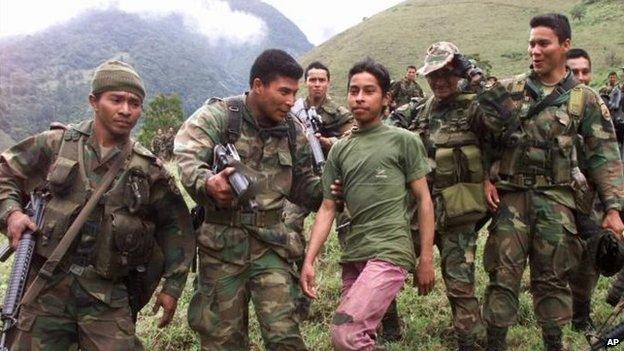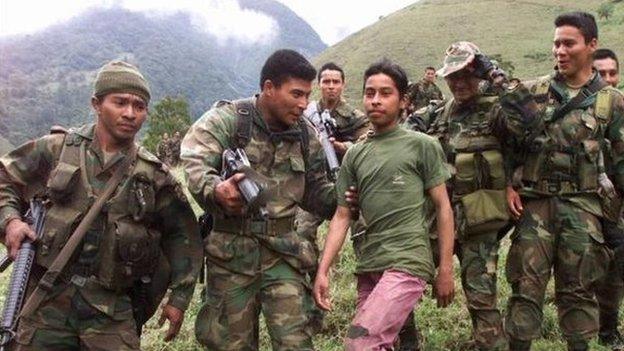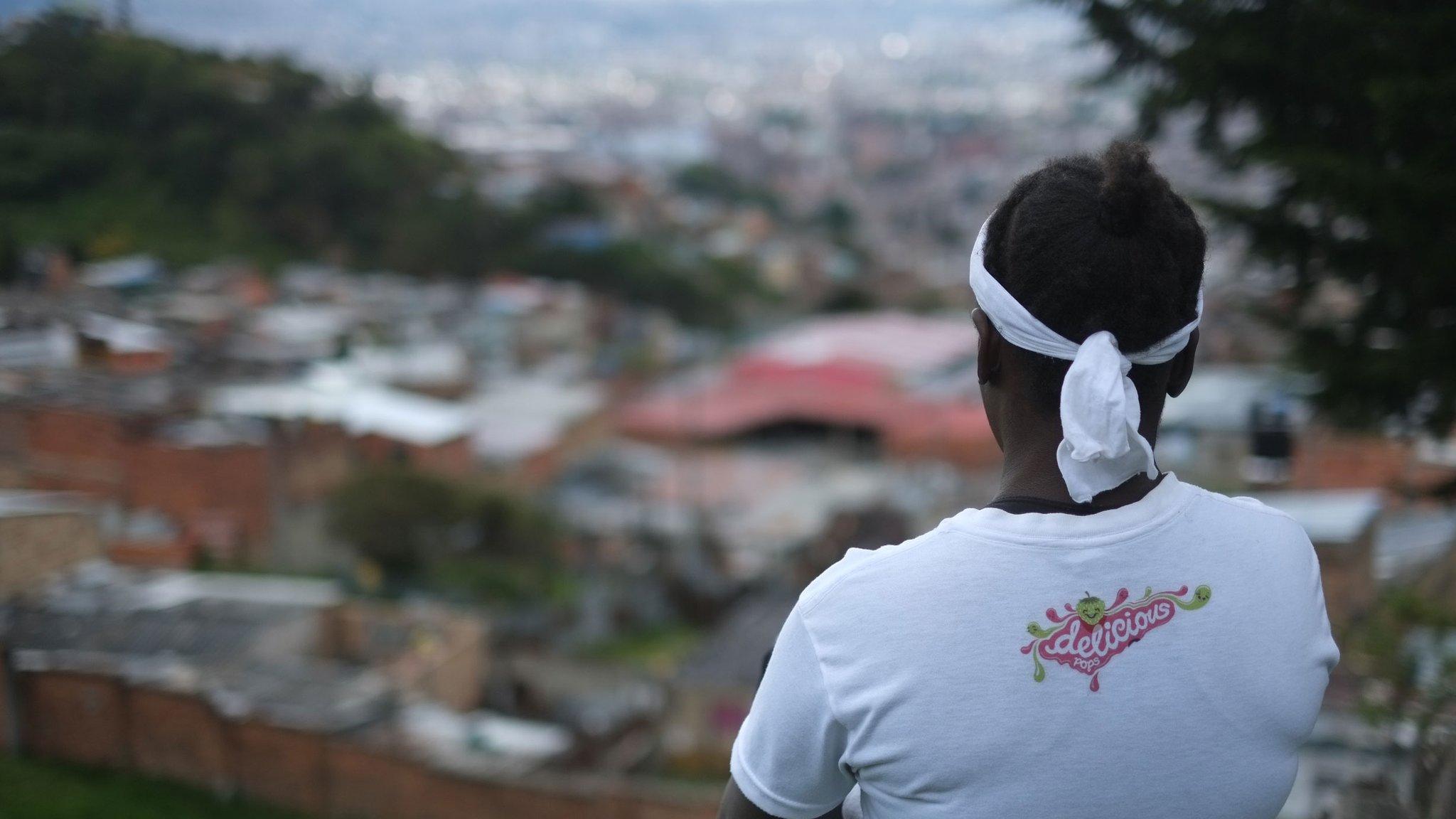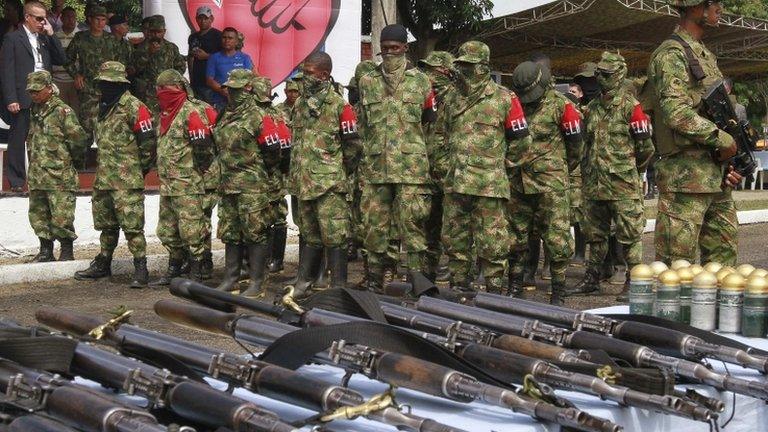Colombian Farc rebels to 'stop recruiting minors'
- Published

The Colombian Army says it has captured Farc fighters who were as young as 13
Colombia's largest rebel group, the Revolutionary Armed Forces of Colombia (Farc), has announced that it will stop recruiting minors.
A negotiator for the rebels at peace talks in Havana, Victoria Sandino, read out a statement saying they would no longer recruit anyone under 18.
The Farc last year said it would stop recruiting children under 17 and discharge those under 15.
The government had said that move did not go far enough.
Human rights groups define any member of a force aged under 18 as a child soldier.

Natalio Cosoy, BBC Mundo, Bogota: Martin's story
Army sources estimate that close to half of Farc members have been recruited as minors. One of those was Martin (not his real name).
When I spoke to him, he told me how it was a natural thing for him and his brothers to end up in the Farc, a group that was consistently present in the area where they lived.
They started, he said, doing errands for the rebels. When he was 11 he became a full member.
"We joined because it was the only choice we had," he told me. He left when he was 16.
"The important thing was to regain my freedom, to be able to do whatever I wanted," he said.

The Farc has in the past said that its youngest members were the offspring of guerrilla fighters or had joined the Farc after they had been orphaned.
In its statement on Wednesday, the Farc said that minors joined the rebel group because they had been left "unprotected" by the state.
The rebels also urged President Juan Manuel Santos to end compulsory military service.
The two sides have been engaged in peace talks since November 2012 and have reached agreement on four out of five main issues on their agenda.
In September, President Santos set a deadline of 26 March 2016 for a final agreement to be signed, although Farc negotiators have since cast doubts on the probability of meeting that deadline.
More than 220,000 people have been killed in almost 52 years of armed conflict in Colombia and more than six million people have been internally displaced.
Colombia 'confident' of Farc peace deal, says president
- Published17 February 2015

- Published13 November 2013

- Published3 October 2013
